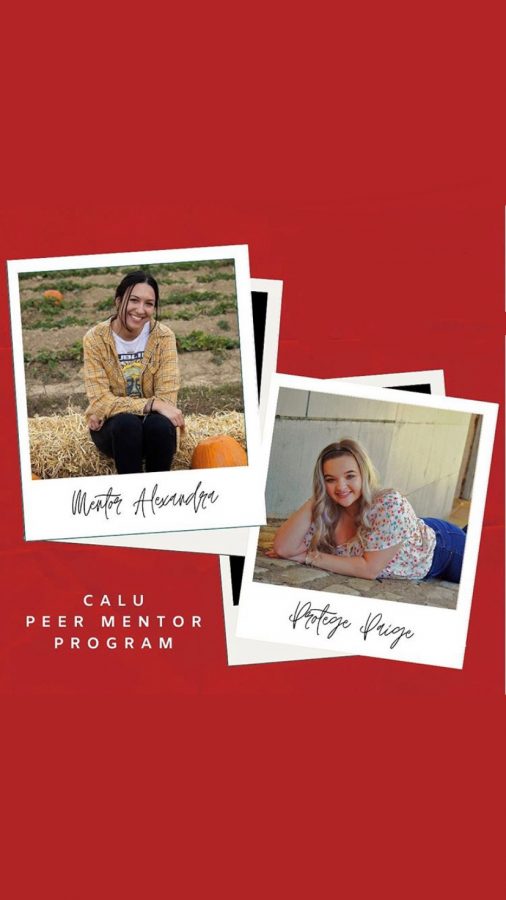Peer mentoring protégés during a pandemic
“…it challenges the relationship because we are unable to meet in person and have that in-person bond.”
October 28, 2020
Not knowing where to go, or who to go to can leave students unsure when first arriving to campus at the beginning of the semester; especially in the middle of a pandemic.
The California University of Pennsylvania has a program that hopes to offer guidance to new and transfer students. Recruitment for mentors stems from tabling, asking former protégés to become mentors, talking to specific clubs, and requesting recommendations from faculty said Carrie Schubert the interim director of peer mentoring.
The peer mentoring program sets up protégés with peers, called mentors, who have a good understanding of campus life and being a Cal U student. This year, in particular, the program focused on pairing the protégés with mentors who “…understands the challenges of online or remote learning,” said Schubert.
Even with the remote process, most mentors are to reach out using text, email or Zoom regardless.
And despite remote learning, the university decided to continue the program Schubert said. “If the University decides to operate remotely in the spring, we will continue to assign mentors to incoming students and provide support to program participants.”
Although communication has continued to stay the same, other challenges have arisen because of the lack of physical interaction due to COVID.
Mentor Alaina Christopher, a junior, and protégé Hailey Sortore, a sophomore, has accumulated a steady friendship after being paired up in the fall of 2019. Both girls cheer and are criminal justice majors with forensic science concentrations.
Unfortunately, their relationship was put to the test during this semester with the presence of remote learning and COVID. The students are used to being able to see each other and rely on physical gatherings to help with support during hard times.
Christopher said that the relationship for her hasn’t changed much, but Sortore said “this pandemic has slightly affected our relationship with my personal mental health issues and being five hours apart from each other.”
Alex Lizzi, a senior mentor, mentioned that she would have to agree with Sortore, and that “…it challenges the relationship because we are unable to meet in person and have that in-person bond.”
Pairings mentor Kayla Germini, senior, and protégé Madison Crist, sophomore, looked at the remote difficulties as positives instead of what they’ve lost.
With less interaction, it can sometimes be hard to stay connected enough to help one another.
“I am almost more thankful for her especially at times like this with us being remote and it being even more stressful now because most of us aren’t really learning anything nor know what is going on,” said Crist.
The peer mentoring program at Cal U will continue regardless of the school’s decision to stay remote or not. Schubert would like to start collecting information from the mentors and protégés on how things are going in their mentoring relationships so that they can continue to properly match and train for what may be to come.
Dori Eichelberger the previous director of the peer mentoring program agreed with Schubert and said that they would like to continue the program and even add to it if the opportunity proceeds.
“Based on our long-term data, peer mentoring does help students. Students who use a peer mentor are on average 13% more likely to continue their second year than students who do not use a peer mentor,” Eichelberger said.






